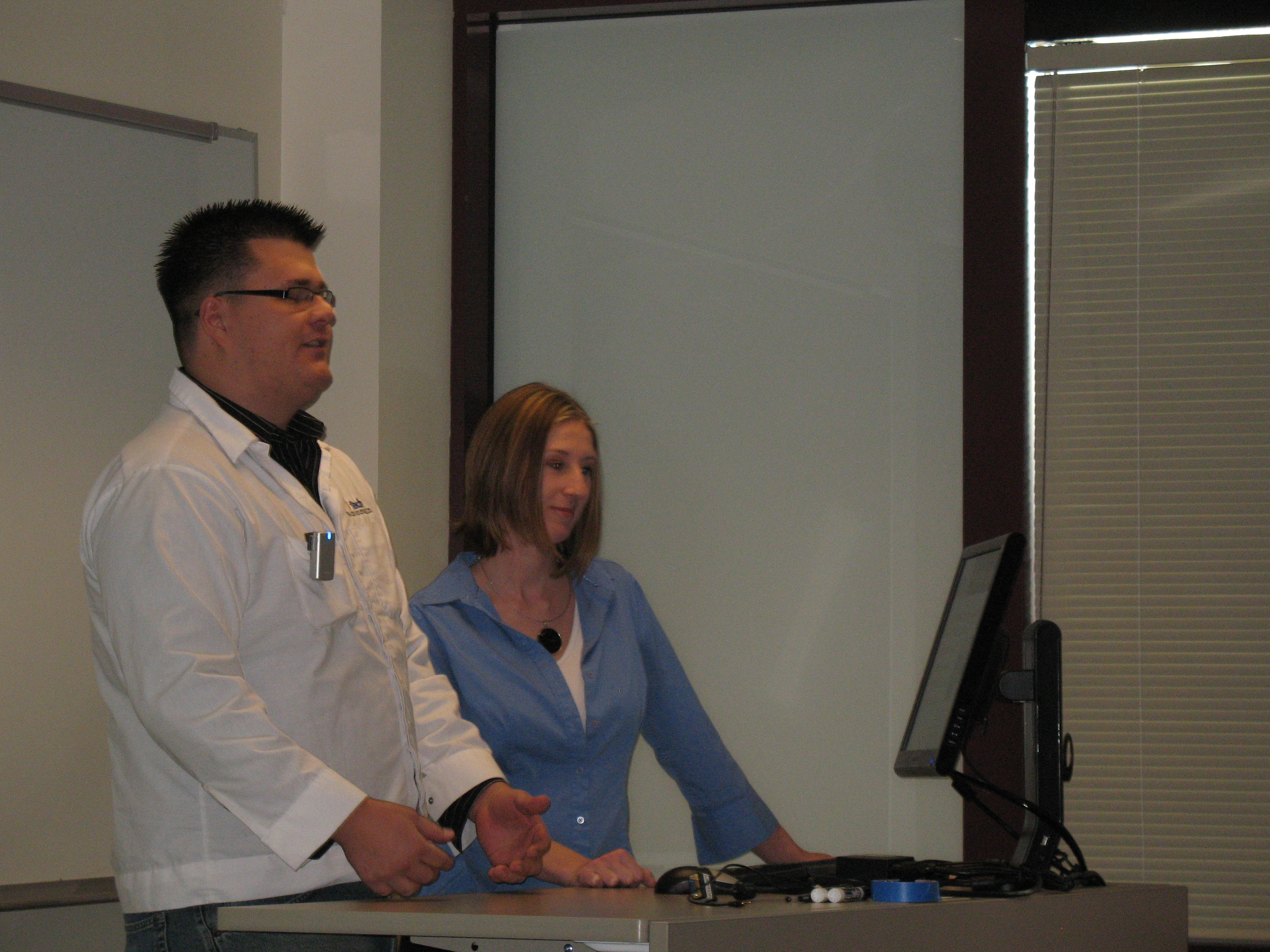
Lee Paulson, who graduated in December as an Environmental Studies major, was back on Feb. 1, this time in front of a class, presenting real world project options to a combined Environmental Studies 319/489 class on Environmental Engagement and the Community. Paulson and his colleague, Wendy Lowery, were both from Tri-Con Industries, part of a series of visitors to the class, all of whom needed help researching solutions to environmental challenges.
"The purpose of the class is to give students some sense of what it is to interact in a client-focused world, and with people who are in the community," said Dave Gosselin, director of Environmental Studies. "The students serve as a research arm for the client."
Tri-Con, which manufactures motorcycle seats, had two pressing questions:
What's the best way to help employees who speak other languages and grew up in radically different places understand the company's environmental goals? "They can pick up on recycling, but they need to know their roles and responsibilities, and why," Paulson explained. He added that a concept such as environmental stewardship can be hard to convey across cultures.
Is there a good way to recycle leftover foam and vinyl? A previous recycler couldn't handle the volume of recyclable material that Tri-Con produced, and Honda, the primary buyer, is encouraging its entire supply chain to be as green as possible.
Other real-world questions that the 45 students in three sections of the classes may help answer this semester are:
How can Lincoln Electric System work with renters to reduce power usage at peak times?
How can the Norris School District maintain gardens during the summer, when students and teachers aren't necessarily around?
How can Ecoproducts and Services best develop a clearinghouse for green services and groups in Lincoln?
How can the new Pinnacle Bank Arena implement recycling and composting to reduce its waste stream?
What are other Big Ten universities doing to build sustainability and resilience into their sport facility operations?
After listening to presentations from several different prospective clients on possible projects, students will be assigned to a small group, based on which projects interest them most. Each group will present recommendations to clients at the end of the semester, Gosselin said. Students will also keep track of their hours and develop a post-project budget for experience and so that their time can be figured into in-kind cost sharing, should the need arise.
"We want the students to be doing something they're passionate about," Gosselin said. "We're advocating with everything we do, not just going through the motions. This gives them a chance to build competencies and credibility.”
-- Kelly Smith